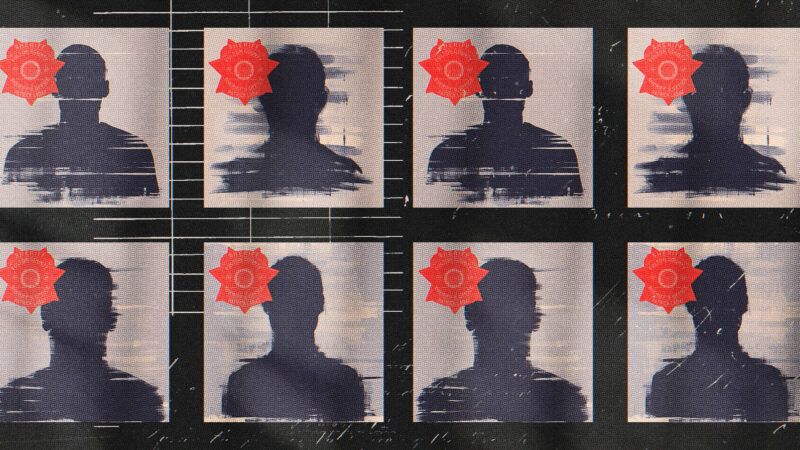Stop Publishing Mug Shots—Even Donald Trump's
Mug shots are not taken to humiliate a defendant before they've been convicted. But that's the purpose they widely serve now.

What may become the most famous mug shot in history is slated to be taken tonight. You'd be forgiven for forgetting why such images are taken in the first place.
That amnesia might be particularly pronounced after the last 24 hours, as a slew of defendants in the Georgia indictment related to allegations that former President Donald Trump and company conspired to overturn the results of the 2020 election have surrendered in Fulton County, Georgia.
Their mug shots have been the center of intense media attention, news articles, commentary, and online mockery, which is odd when considering what a mug shot is, or, rather, what it's supposed to be: a banal step executed by law enforcement as a record-keeping measure post-arrest.
The fascination with these defendants' mug shots is a (perhaps counterintuitive) reminder of why the media should decline to publish such photos and why governments should limit their release. That these defendants are in many ways unsympathetic does not change the principle of the matter: that mug shots are not taken to humiliate a defendant before they've been convicted of a crime. The events of this week serve as a reminder, however, that that's the function they serve in wider society.
That's not to say that the defendants in the Georgia indictment should be held to a different standard than other criminal defendants. It's the standard itself that needs to change, which will benefit the people who are much less powerful and who stand to lose much more by having their faces splashed across the press before they've had a chance to state their case.
It's an effort that several states across the country have undertaken in various ways. Last year, Louisiana passed a law hamstringing law enforcement's ability to release certain mug shots pre-conviction for nonviolent crimes, with several exceptions in place for more serious crimes and if the person in question is deemed a fugitive. "Though society may be accustomed to mugshots, the time has come for us to question their social value," wrote state Rep. Royce Duplessis (D–New Orleans), who filed the legislation, in an op-ed for The Advocate. Several states—including Arkansas, Florida, Montana, New York, and California—have implemented various guardrails against the unfettered access to and publication of mug shots, and the sky is yet to fall.
The circulation of the Georgia defendants' mug shots may seem like a peculiar hill to die on. They are, after all, some of the most connected people in the country, with support from many Republican partisans nationwide. But it's that fame that highlights how far the mug shot as a concept has been perverted. I'm willing to venture that the outlets gleefully publishing Rudy Giuliani's shot already knew what he looked like, and knew most of their dedicated readers did as well. But that wasn't the point.
One of the paramount constitutional promises in the United States is the notion that you're innocent until proven otherwise. That applies to the poorest defendants, and it also applies to Trump. When the latter's mug shot is released, it will almost certainly saturate the airwaves and the web. He'll bounce back.
Others in his situation, whose names you'll never hear, might not.


Show Comments (78)